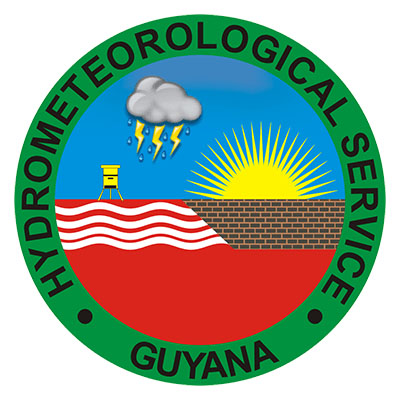The recently announced anticipated “above normal” temperatures for the months of September to November could create challenges for Guyana’s agriculture sector whilst, simultaneously, dishing out episodes of heat-related discomfort to humans across parts of the country, according to information released late last month by the state’s Hydrometeorological Service, which falls under the purview of the Ministry of Agriculture.
The forecast, going forward, points to an increased likelihood of higher-than-average temperatures, which could have widespread effect on both agriculture and public health though no details have been provided on the likely severity of those afflictions.
The August 28 release headlined – Above-normal temperatures expected across Guyana from September to November 2024 – alludes to the potential impact of anticipated heat levels on “health, agriculture and livestock” during a period that typically marks the hottest months of the year.
The Met Office’s media release asserts that the afflictions that could derive from heightened temperatures are likely to give rise to typical heat-related illnesses that might include dehydration, heat exhaustion, and heat stroke which, it says, “become significant risks, especially for vulnerable groups like the elderly, children, and those with pre-existing health conditions.” Responses to periods that realize “an above-average number of heat wave days” usually see the country’s Hydromet Service issue public warnings regarding the need to take preventive measures that include “staying hydrated, limiting outdoor activities during the hottest parts of the day, and ensuring that living and working spaces are well-ventilated.”
While no serious food security concerns are customarily derived from these accustomed heat waves, the phenomenon, this time around, may well attract enhanced official attention given the country’s responsibilities in the matter of the shoring up of the food security bona fides of countries within the Caribbean Community (CARICOM) that have been impacted by Hurricane Beryl.
During the country’s seasonal weather-related challenges, farmers are known to face livestock-related concerns since the period coincides with what are the driest months in Guyana. During these periods farmers frequently face water availability challenges crises that result in lower yields.
Concerns extend beyond the likely impact of seasonal heat waves on crops, extending to livestock. In the case of humans, heat waves can cause humans to become affected by heat stress, a condition that induces “reduced feed intake, lethargy” and also impacts on breathing.
The Hydrometeorological Service has noted that between January and July this year average day time temperatures across Guyana have consistently exceeded the 32C historical norms, with some months recording higher temperatures for the same period in 2023, a record-breaking year. Against the backdrop of what the Hydrometeorological Service says is likely to be a “period of extreme heat” the Agency is urging the citizenry “to take the necessary precautions.”









